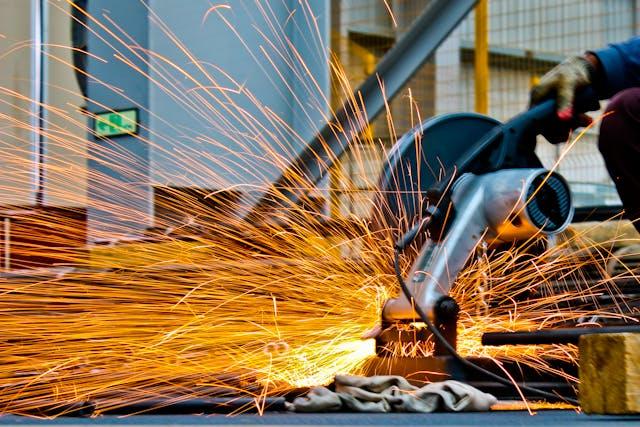Industrial Power Systems: Best Practices for Selecting Safe and Reliable Equipment
In the world of manufacturing, a reliable power system is the foundation of your success. Industrial power systems include everything from the motors that drive your machines to the circuit breakers that protect them. Each component must work together seamlessly to ensure uninterrupted operations, safety, and efficiency.
Hence, selecting the right equipment isn’t just about meeting technical specifications. In fact, it is the process of building a system that keeps your facility running smoothly, prevents costly downtime, and protects your workforce.
This is exactly what this article is all about. We’ll walk you through the best practices for choosing safe and reliable equipment so you can confidently design a power system that supports your operations today and into the future.
Key Considerations for Equipment Selection
Safety Standards and Regulations
Safety is the foundation of a reliable power system. Industrial environments are fraught with risks, and faulty electrical systems can escalate these dangers. That’s why adherence to safety standards like the National Electrical Code (NEC) and International Electrotechnical Commission (IEC) guidelines is crucial.
When selecting equipment, look for certifications such as UL and CSA. These certifications guarantee that the components have undergone rigorous testing and meet safety benchmarks.
Reliability and Uptime
Every second counts in industrial production. Equipment failures disrupt operations and ripple through supply chains, delay deliveries, and erode customer trust. That’s why reliability should be a top priority in your equipment selection process.
High-quality components and robust designs are key to minimizing failures. To prevent equipment failures, you need reliable protection, such as circuit breakers. These critical components hold your machines and equipment together, so it's essential to invest in quality ones. When buying, consider the following buying tips for circuit breakers to ensure you get the right one for your needs. Whether you’re buying new or used products, they must meet your safety and efficiency standards.
Efficiency and Energy Conservation
Energy efficiency is crucial for industrial power systems. Modern equipment, such as high-efficiency motors and transformers, greatly reduces energy consumption, lowering utility bills and minimizing the environmental footprint.
For example, energy-efficient motors use advanced technology to deliver the same performance as standard models while consuming less power. Over time, these savings can be redirected to other operational priorities. Additionally, adopting efficient systems signals your commitment to sustainability, enhancing your brand’s reputation in an increasingly eco-conscious market.
Specific Equipment Types and Selection Criteria
Motors
Motors are the workhorses of industrial power systems, powering everything from conveyors to assembly lines. Choosing the right type of motor depends on your specific application. For instance, AC motors are reliable and cost-effective for general tasks, while DC motors excel in precision operations.
Servo motors, on the other hand, are ideal for applications requiring precise control and responsiveness. When selecting a motor, consider factors like horsepower, torque, and operating speed. A well-matched motor ensures optimal performance, minimizes energy waste, and reduces wear and tear on your machinery.
Transformers
Transformers are indispensable for managing voltage levels in power distribution systems. They ensure that the right amount of power reaches each part of your facility. Key considerations when selecting a transformer include its voltage rating, power capacity, and efficiency.
For instance, a transformer with a higher efficiency rating reduces energy loss during operation, translating to long-term cost savings. Choosing the right transformer improves reliability and supports your overall energy conservation strategy.
Circuit Breakers
Circuit breakers may not grab headlines, but they are silent guardians of your power system. Their job? To protect your equipment from electrical faults by interrupting power flow during overcurrent events.
When selecting a circuit breaker, look for one with adequate interrupting capacity to handle your system’s potential fault current. Additionally, consider its trip characteristics, which determine how quickly it responds to specific fault conditions. Reliable circuit breakers are a must-have for any industrial setup, ensuring the safety of your equipment and workforce.
Controllers
Controllers, such as Programmable Logic Controllers (PLCs) and Variable Frequency Drives (VFDs), are the brains of modern industrial systems. They automate processes, improve efficiency, and offer precise control over machinery.
Key factors to consider include ease of programming, functionality, and compatibility with your existing systems. The right controller can transform your operations by enhancing flexibility and reducing manual intervention, making your processes faster and more efficient.
Best Practices for Equipment Installation and Maintenance
Proper Installation
Even the most advanced equipment requires proper installation to function effectively. Hiring qualified electricians and following manufacturer guidelines are critical steps to ensure a safe and efficient setup. Poor installation can lead to frequent breakdowns, safety hazards, and unnecessary expenses.
Regular Maintenance
Maintenance is the heartbeat of a reliable power system. Regular inspections, preventive maintenance, and prompt repairs keep your equipment in peak condition. For added precision, consider adopting predictive maintenance techniques.
These use sensors and analytics to detect issues before they cause downtime, saving you both time and money. By prioritizing maintenance, you can extend the life of your equipment and improve overall system efficiency.
Concluding Thoughts
Selecting the right equipment for your industrial power system is a strategic investment in your business’s future. You need to prioritize safety, reliability, and efficiency to build a power system that boosts productivity, safeguards workers, and reduces costs. Your efforts today will pave the way for a safer, more efficient, and profitable tomorrow.

